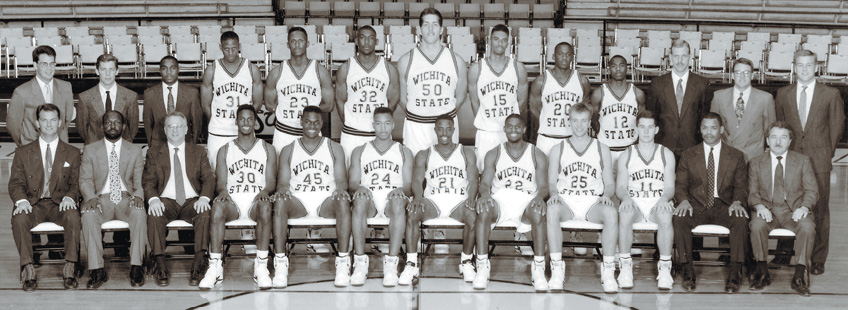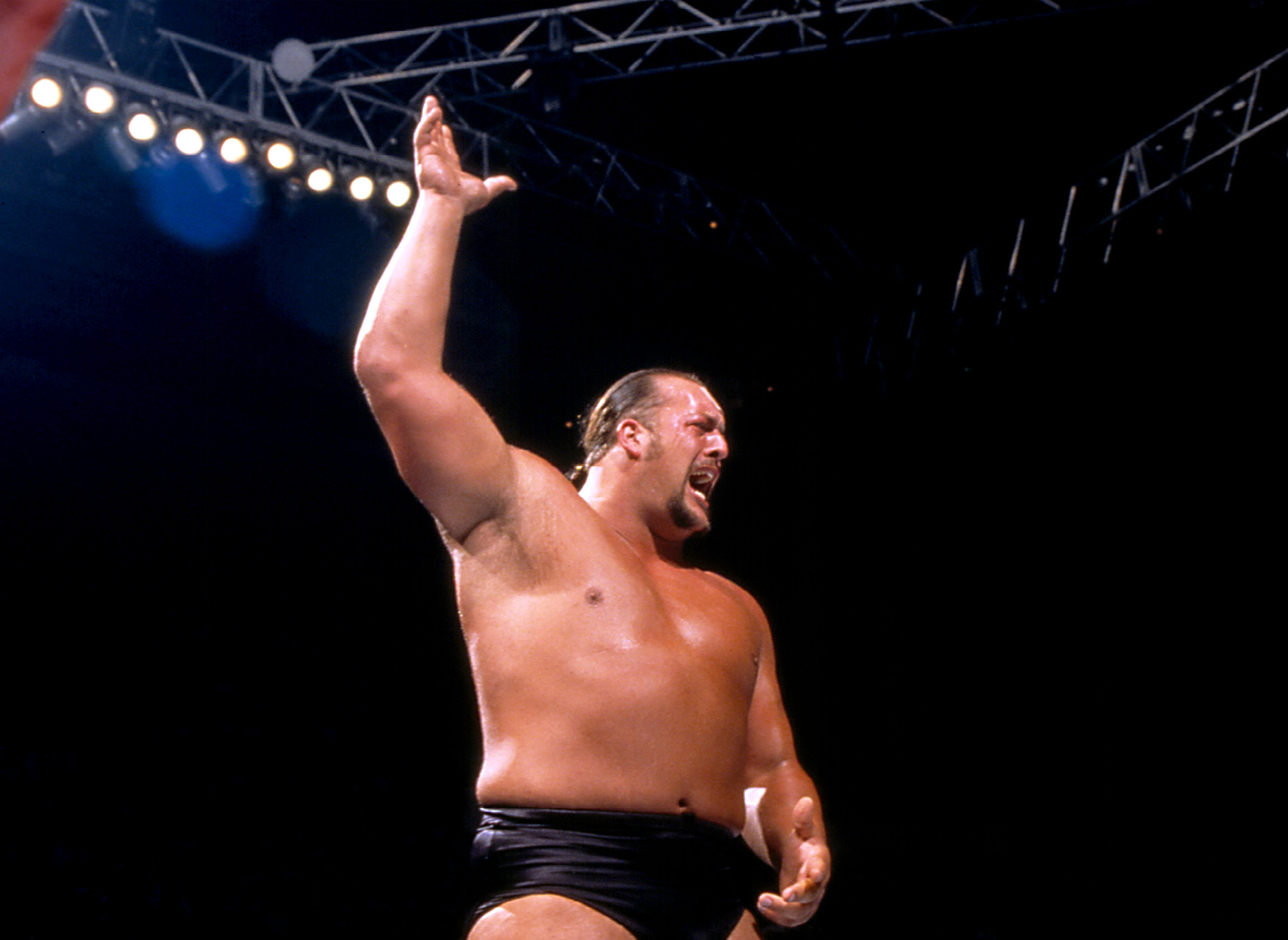Remember Jack and the beanstalk, the giant and that goose that laid those golden eggs? Well, to describe pro wrestling today, I can think of nothing more apt than to tell you it's like a fairy tale — a fairy tale on steroids.
At 7 feet 1 inches and let's call it 500 pounds, Paul Wight fs '92 is The Big Show in the big show that is professional wrestling. His signature move is the Choke Slam; his finishing move, The Showstopper. And he is, at press time anyway, the current World Wrestling Federation champion, having showstopped his way past Triple H and The Rock in a triple-threat match for the wwf title belt and then choke slammed his way past the No. 1 contender, The Big Boss Man, in a pay-per-view sports entertainment extravaganza Dec. 12.
A giant in the world of wrestling, although neither the tallest nor the heaviest (Imagine that!), Wight amazes with his shows of strength. Not only has he upturned a four-door sedan with his bare hands, he's hurled Stone Cold Steve Austin through a steel cage and lifted the entire ring entirely off the ground. (Now may be a good time for me to let you know everything and anything you think you might know about wrestling is, well, suspect.)

The most amazing thing about Wight's rampages of power is that he performs them in front of live audiences of tens of thousands and television fans numbering in the tens of millions. And check this out. According to the usa Network, between 1997 and 1998, the wwf experienced a 156 percent increase in rating among viewers with four or more years of college.
The man to be lauded for all this, or despised, depending on your viewpoint, is Vince McMahon, a third-generation pro wrestling promoter who's taken his $850 million company public and rescripted the "sport" into an international pop-culture powerhouse that last year generated $250 million in revenue while dominating cable tv. wwf's Raw is War is the most popular show on cable. Why is this so? If you listen to McMahon, who in 1982 had the brainstorm of letting go the pretense of true competition and rechristening pro wrestling "sports entertainment," then this is the answer: "The wwf is a soap, it's an action adventure, it's a live-action cartoon, and it's part talk show — a hybrid of everything successful on tv, all rolled into one."
Wight's role in the unfolding saga of the wwf, give or take a plot twist or two, is this: He debuted at the St. Valentine's Day Massacre in 1999, coming to the aid of the sinister corporate boss, Mr. McMahon, who was battling Austin in a cage match. For a while, Show was the Undertaker's apprentice, but the Taker disappeared. Then Show found out his father was dying. When his dad died, the Big Boss Man tied Mr. Wight's coffin to the back of a police car and dragged it away. (This might be a good place to remind you there's not a ‘truth in wrestling' motto or anything.) Enraged, Show beat up the Boss Man and was a surprise entrant in a championship match. He won. But Boss Man tricked Show's mom into revealing Paul was illegitimate. True or not, Show took down the Boss Man again and defended his wwf title belt.
After that run-down it's easy to see where pro wrestling's critics get their ammunition. Maybe the spectacle does glorify violence; maybe it is an indicator of the decline of Western culture. Consider this comment from Ron Matson, wsu associate professor of sociology: "I've read studies that indicate as our regular lives grow more trivial, we're looking at tv to find meaning. Television becomes a window on the world. In wrestling's case, that's a window onto something strange. Looking for meaning there, that's scary as all get out." (Indeed. As scary as a 7-foot giant grappling you to the floor in a deadly Choke Slam.)
Two people make me feel better about the whole wrestling thing: First, my 10-year-old friend, Marshall, a veteran fan, who served as my story consultant, and Wight himself, as himself.
When I asked Marshall, a smart, polite, charming young man, why he likes wrestling so much, he thought about it and then told me: "I don't know. I guess, because it's entertaining." His response is so, well, innocent.
And, come on, you've got to like Wight, a South Carolina native who, from the time he picked up a basketball at the age of 6, has loved the sport, even though in the long run it didn't work out for him. After a year at Northern Oklahoma Junior College, he signed with wsu. Deemed a project, he rarely played, averaging 2.0 points and 2.3 rebounds. "The only thing I was known for at Wichita State was diving for loose balls," he once explained. "You go out there with two minutes left, and you're trying to do anything you can to impress someone." That give-it-your-best-shot attitude is perhaps his most telling, and winning, attribute. In 1991, he answered the wsu media guide question Whom do you most respect? this way: "People who pull themselves out of the trash and make themselves the best at what they choose to do."
In at least one version of Jack and the Beanstalk, the giant crashes to the ground and dies. While I can't tell you about any of the wwf's future plot machinations or Wight's part in them, this I think I do know: This giant has a firm grip on that goose with the golden eggs.






